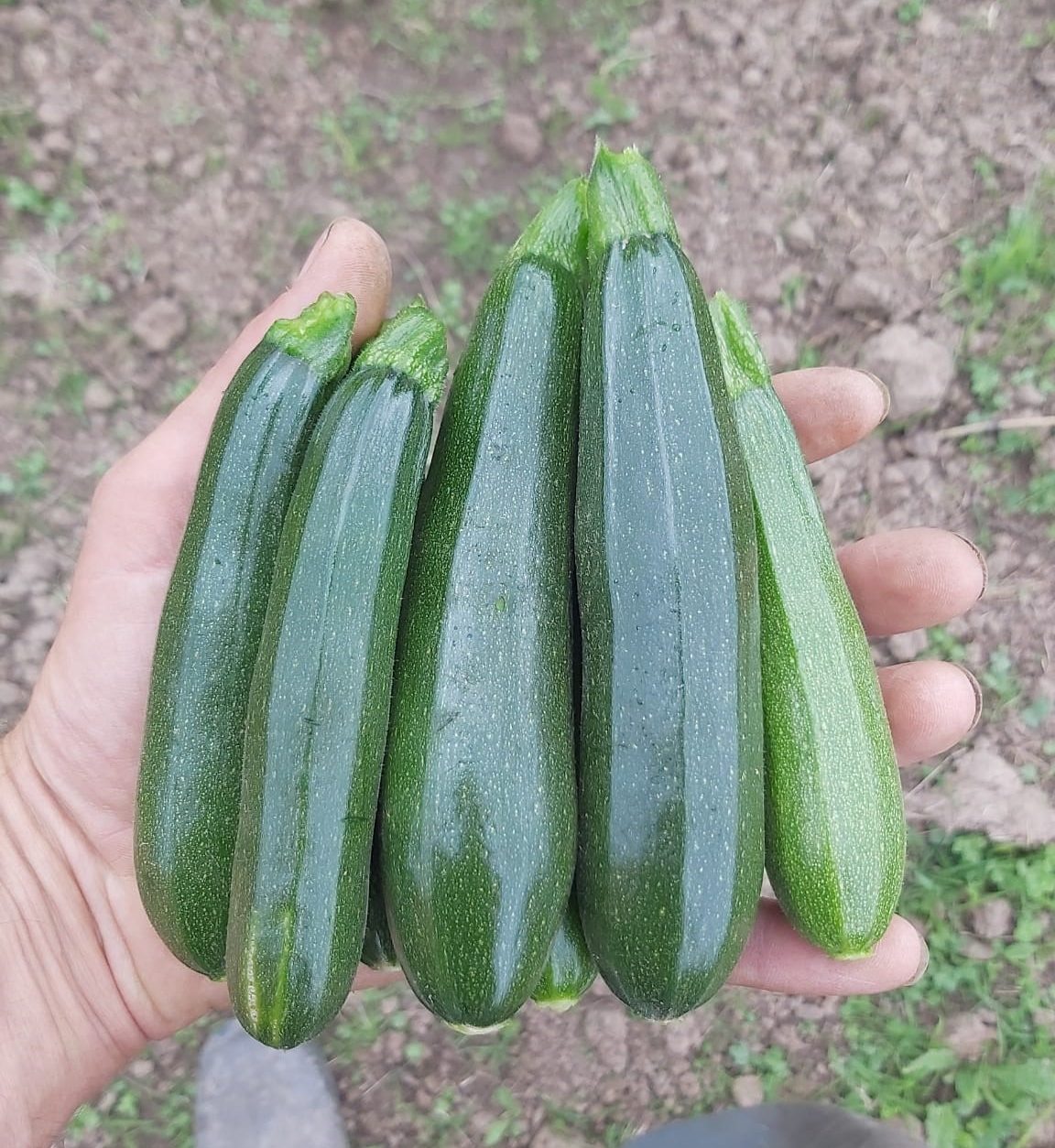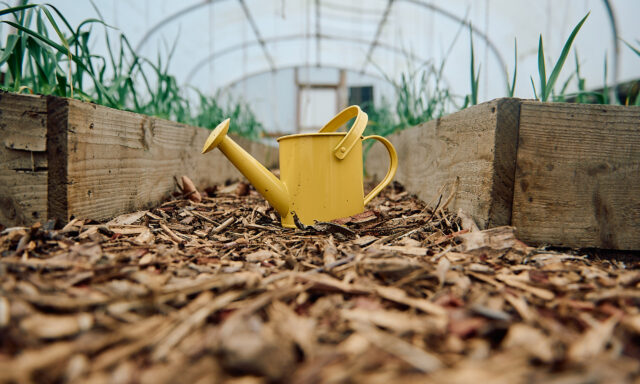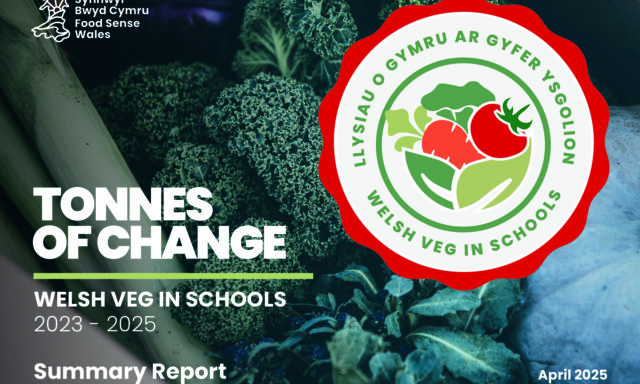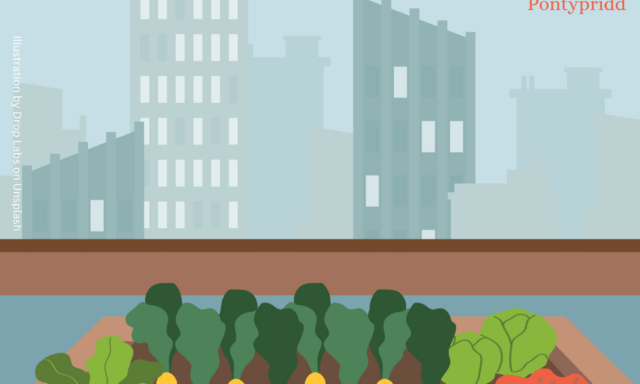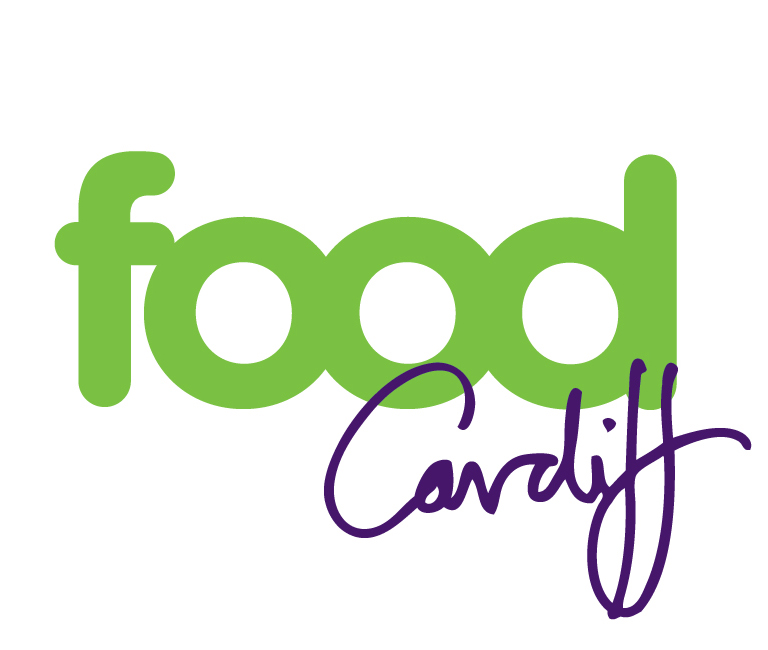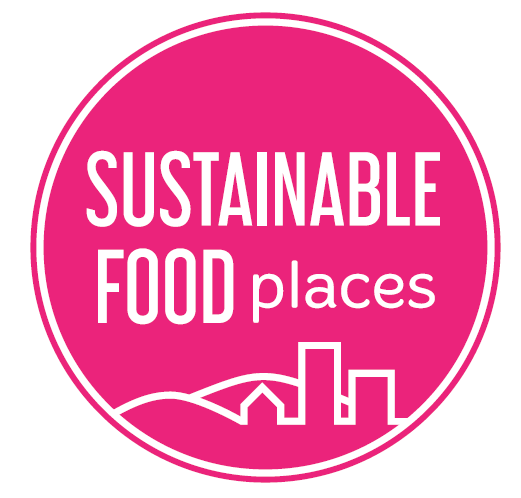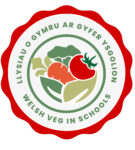Welsh Veg for Primary Schools in Wales – how a new sustainable supply chain investment scheme could drive up agroecological veg production
School meals represent an opportunity for a secure market for agroecological[1] veg producers and could be used as a key mechanism for investment in vegetable supply chains in Wales, according to findings published today in an evaluation report of a pilot project commissioned by Food Sense Wales.
The report notes that subsequent investment would have the knock-on effect of developing a regionalised and resilient network of food producers that would be able to supply veg into the heart of their communities. In order to achieve this, the report recommends the need for a sustainable supply chain investment scheme that specifically targets the gap between cheapest available veg and sustainably produced Welsh veg.
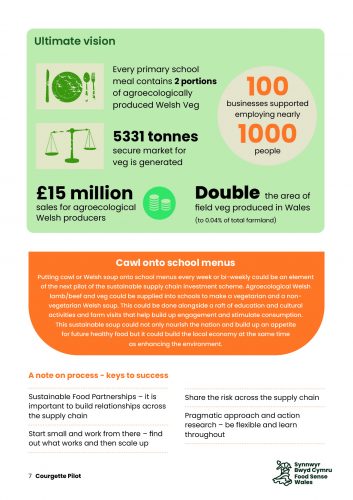 The report also concludes that if Welsh Government committed to every primary school meal containing 2 portions of veg next school year then they would have to supply 5331 tonnes of veg into schools. If this was all from agroecologically produced Welsh veg then this would generate a guaranteed market for agroecological producers in Wales of around £15m. This would involve doubling the area growing field veg in Wales and would support nearly 100 businesses employing nearly 1000 people. It would also have the knock-on effect of developing a regionalised and resilient network of food producers able to supply veg into the heart of their communities.
The report also concludes that if Welsh Government committed to every primary school meal containing 2 portions of veg next school year then they would have to supply 5331 tonnes of veg into schools. If this was all from agroecologically produced Welsh veg then this would generate a guaranteed market for agroecological producers in Wales of around £15m. This would involve doubling the area growing field veg in Wales and would support nearly 100 businesses employing nearly 1000 people. It would also have the knock-on effect of developing a regionalised and resilient network of food producers able to supply veg into the heart of their communities.
These are some of the key findings included in the Agroecological Welsh Veg for Welsh Primary Schools evaluation report written by Dr Amber Wheeler and commissioned by Food Sense Wales. It’s an evaluation of a recent pilot project that saw courgettes from Blas Gwent, a Wales-based agroecological grower being delivered to schools in Cardiff via Wales-based wholesaler, Castell Howell with the support of the Sustainable Food Partnership, Food Cardiff.
For the last 40 years, small scale horticulture has been under-resourced as farms under 5 hectares haven’t been eligible for much funding. The Welsh Government’s newly proposed Sustainable Farming Scheme includes dedicated horticulture support and a lower threshold of 3 hectares but many small-scale vegetable farms still won’t be eligible. At the same time, Primary School children in Wales need to be eating more veg. These two factors were the key incentives to undertake this action research.
Under the umbrella of Food Cardiff, Castell Howell and Blas Gwent together with the support of key partners, Cardiff Council, Cardiff and Vale University Health Board and Tyfu Cymru, the group decided to explore what it would take in practice to get Welsh veg from agroecological producers onto Welsh school children’s plates. The group decided to focus on courgettes and committed to a pilot looking at the challenges of getting veg through the food system and consumed in schools.
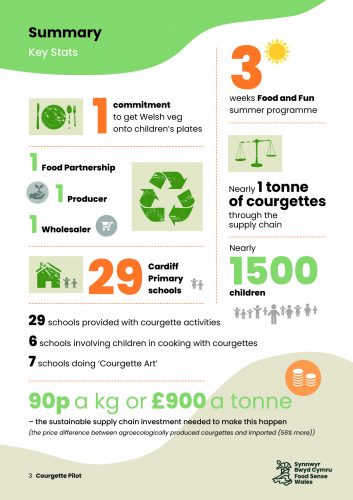 The pilot project was undertaken over a period of three weeks during the Food and Fun summer programme across 29 Cardiff Primary schools engaging with approximately 1500 children. Nearly 1 tonne of courgettes went through the supply chain and these courgettes were used by the school catering teams to create lunches as well as by the Food and Fun Co-ordinators to engage children in cookery and other related activities such as courgette art.
The pilot project was undertaken over a period of three weeks during the Food and Fun summer programme across 29 Cardiff Primary schools engaging with approximately 1500 children. Nearly 1 tonne of courgettes went through the supply chain and these courgettes were used by the school catering teams to create lunches as well as by the Food and Fun Co-ordinators to engage children in cookery and other related activities such as courgette art.
This action research pilot showed that Welsh agroecological veg supply into schools is possible. However, agroecological veg costs more than other and imported veg and if we are to invest in a sustainable supply chains, there is a cost. In this case, kindly paid for by the wholesaler, Castell Howell, it was 90p a kg or £900 a tonne. This was the cost of investing in agroecological supply chain (the difference between £2.50, the UK average organic wholesale price of courgette compared to the cheapest available wholesale price £1.60 = Plus 56%). This 56% increase in the price of the product was the price of investing in the local agroecological supply chain and needs to be covered if we want Welsh Production to be supported by public procurement.
Effectively the pilot created a sustainable supply chain investment scheme that covered the cost difference between the cheapest product and a Welsh sustainably produced product and in so doing made it possible for small scale veg producers to supply into primary school procurement through a wholesaler.
“School meals provide an opportunity for agroecological veg producers and could stimulate investment in vegetable supply chains in Wales,” says Dr Amber Wheeler.
“Welsh Government is committed to improving the health of the nation and, as part of the Co-operation Agreement with Plaid Cymru, is rolling out free school meals to all primary school children in Wales by 2024. This provides a fantastic opportunity to provide nutritious meals to primary school children across the nation at the same time as potentially investing in sustainable Welsh production and supply chains.
“Establishing a sustainable supply chain investment scheme would result in the development of a network of food producers that would able to supply veg into the heart of their communities whilst delivering on Government’s local procurement and Net Zero commitments.
“But doing this would take a sustainable supply chain investment scheme that specifically targets the gap between cheapest available veg and sustainably produced Welsh veg,” adds Dr Wheeler. “A sustainable supply chain investment scheme could also be applied across other sectors, such as beef and lamb, which also could benefit more from public procurement markets if the cost differential were bridged.”
Katie Palmer, Programme Manager at Food Sense Wales who commissioned this pilot as part of the organisation’s work with the Peas Please initiative, is now excited to see how this initial pilot could be scaled-up.
“There is an opportunity to build on this pilot to see how a bigger and better sustainable supply chain investment scheme could work – something that’s needed if Welsh Government is to meet its commitment to increase the amount of locally produced food going into schools as part of their commitment to offer a free school meal to every primary school child by the end of 2024,” says Katie.
“Having seen the direct impact of this project, we’re now hoping to pilot a second phase working with additional Food Partnerships in different areas across Wales; with more producers; more variety of produce; more schools and children and more engagement. The commitment to get Welsh veg onto children’s plates would stay the same but we could work with more producers – looking at different varieties of veg; arranging farm visits, creating a longer pilot study working with more schools, co-working with catering staff and involving children in recipe design. It was so heartening to see the children engage with their food; connecting with where their food comes from, enjoying and discovering locally produced veg. We’re now really looking forward to progressing this study and scaling up this important work.”
ENDS
[1] Agroecology is the use of principles in farming practices that ensure a balance between plants, animals, people and their environment. Agroecological farming practices aim to work with wildlife, mitigate climate change and give power to local growers and communities to create systems best suited to their needs.
- Read the report in full here.
- For further information or to arrange interviews, please contact Sian-Elin Davies, Communications and Engagement Manager, Food Sense Wales

